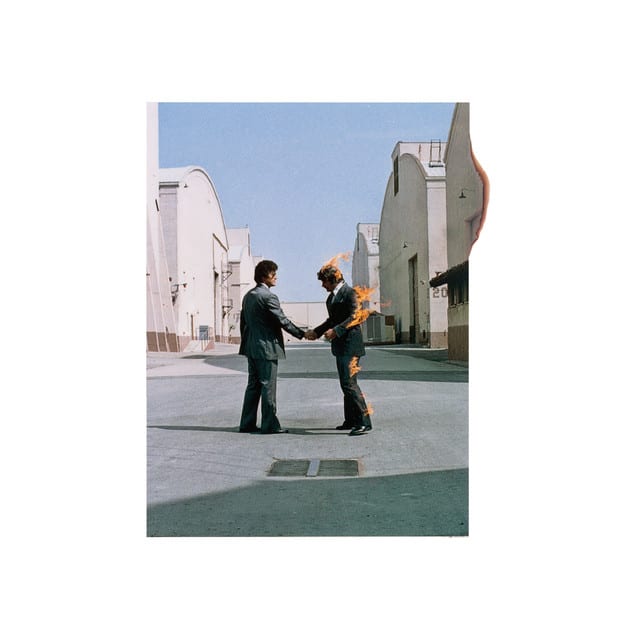Released: 1975
“Wish You Were Here” by Pink Floyd isn’t just a song; it’s an experience, a poignant exploration of absence, discontent with societal norms, and the intrinsic human yearning for authentic connection amidst a seemingly indifferent world. Behind its haunting melody and serene acoustic strums, the song harbors a profound narrative on loss, questioning the very fabric of reality and the choices we make within it.
The opening lines of the song, veiled in abstract radio chatter, immediately set the tone of disconnection and confusion. The seemingly nonsensical conversation overshadows a depth of introspection that the song soon dives into:
“So, so you think you can tell / Heaven from hell? / Blue skies from pain?”
Here, the lyrics initiate a dialogue, questioning our ability to distinguish between utopian ideals and the harrowing realities of life—a heaven that’s maybe not so heavenly, a “hell” that might not be as far from “blue skies” as we think. The contrast between “a green field” and “a cold steel rail,” and “a smile from a veil” further delves into these dualities, urging listeners to question the superficial from the genuine, the facade from the truth.
The verse that follows, “Did they get you to trade / Your heroes for ghosts?” speaks to the compromises and sacrifices one makes, often trading profound ideals or people we admire (“heroes”) for the insubstantial or lost (“ghosts”). “Hot ashes for trees? Hot air for a cool breeze?” continues this theme, lamenting the exchange of the vibrant, living aspects of life for the burnt-out remains or the emptiness of promises unfulfilled. The ultimate question, “Did you exchange / A walk-on part in the war / For a lead role in a cage?” hits the hardest, symbolizing the choice between a minor role in a vast, meaningful context (“the war”) versus a prominent position in a confined, meaningless existence (“a cage”).
The chorus, “How I wish, how I wish you were here,” repeated with aching simplicity, embodies the essence of longing. The song’s protagonist isn’t just missing someone physically but is mourning the loss of what that person represented—genuine connection, shared understanding, and the mutual combat against the alienation and disenchantment of modern existence.
“We’re just two lost souls / Swimming in a fish bowl / Year after year,” the song continues, encapsulating the repetitive and cyclic nature of life, suggesting a feeling of being trapped in a mundane, transparent container where genuine experiences seem just out of reach. It’s a poetic expression of existential dread and the search for meaning in a “fish bowl” where everyone can see you struggle but can’t understand or share in your confinement.
By the time we reach “Running over the same old ground / What have we found? / The same old fears,” it’s clear that Pink Floyd isn’t just reminiscing about a friend or questioning personal choices; they’re critiquing a societal structure that encourages complacency, the relinquishment of dreams for security, and ultimately, a life of regret over the roads not taken.
“Wish You Were Here” is a timeless anthem that goes beyond nostalgia. It’s a meditation on existence, challenging us to think deeply about our choices, the authenticity of our connections, and the essence of freedom in a world that often feels confining. Pink Floyd crafted not just a song but a mirror, reflecting the complexities of the human condition with a melody that haunts, comforts, and understands, all at once.






